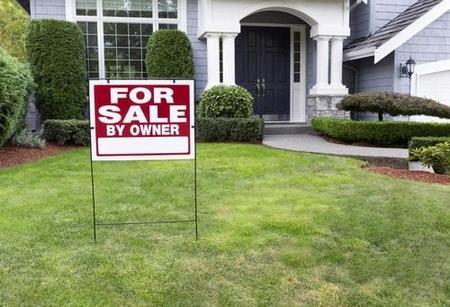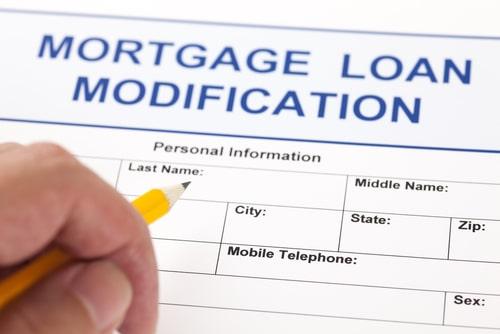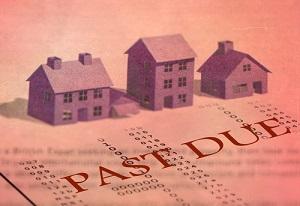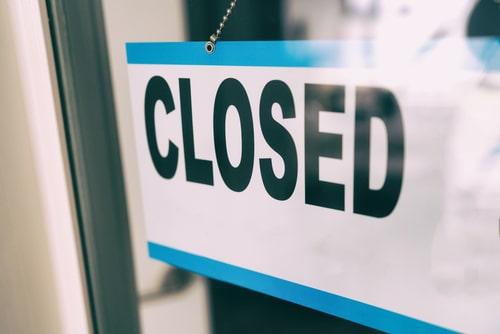1512 Artaius Parkway, Suite 300,
Libertyville, IL 60048
Call for a FREE Phone Consultation
847-549-0000
Video Consultations Also Available
 Spanish
SpanishServing Clients Across 7 Illinois Locations
Recent Blog Posts
Selling Your Home as a For Sale By Owner Transaction
 If you are ready to sell your home, you may have several questions and concerns including whether or not you should employ the assistance of a real estate agent. Selling a home is a major undertaking that is full of potential complications, but it is possible to sell your home without the help of an agent. There are both advantages and disadvantages associated with selling a home “for sale by owner” or FSBO. While you avoid paying a listing agent’s commission, you also incur major responsibilities. According to one study, only about ten percent of people selling their homes complete the sale without assistance from a real estate agent. If you want to learn more about your options when selling your home, an experienced real estate lawyer can be a tremendous resource.
If you are ready to sell your home, you may have several questions and concerns including whether or not you should employ the assistance of a real estate agent. Selling a home is a major undertaking that is full of potential complications, but it is possible to sell your home without the help of an agent. There are both advantages and disadvantages associated with selling a home “for sale by owner” or FSBO. While you avoid paying a listing agent’s commission, you also incur major responsibilities. According to one study, only about ten percent of people selling their homes complete the sale without assistance from a real estate agent. If you want to learn more about your options when selling your home, an experienced real estate lawyer can be a tremendous resource.
What Are the Pros and Cons of an FSBO Sale?
When you sell your home without input and guidance from a real estate agent, you gain total control over the sale. This means that you get to determine the listing price, the selling strategy, and the details on the listing. You will also be in charge of organizing open houses or tours of your home. For many, this level of control is appealing. Individuals who sell their homes on their own also avoid paying the listing agent’s three percent commission fee.
What Are the Advantages and Disadvantages of a Short Sale?
 If you are behind on your mortgage payments, you know just how stressful it can be. You may end up losing sleep because you are worried about what will happen to your home. If you owe more on the home than it is worth, you may be a risk of foreclosure. In situations like these, one option that many people find preferable to foreclosure is a short sale.
If you are behind on your mortgage payments, you know just how stressful it can be. You may end up losing sleep because you are worried about what will happen to your home. If you owe more on the home than it is worth, you may be a risk of foreclosure. In situations like these, one option that many people find preferable to foreclosure is a short sale.
During a short sale, a home is sold for less than what the owner owns on the home. Additionally, the lender generally agrees to accept less than the amount owed by the borrower by means of a the short sale. This option comes with certain advantages, as well as some disadvantages. If you are concerned that your home may be foreclosed on, a qualified foreclosure lawyer can help you determine whether or not a short sale may be right for you.
Short Selling to Avoid Foreclosure
Research shows that approximately one in every 1,380 Illinois homes is foreclosed on. Foreclosure can be an extremely stressful and embarrassing process to endure. Although foreclosure can happen to anyone, many people feel a great deal of shame regarding foreclosure. The greatest benefit of a short sale is that it can allow you to avoid foreclosure. When a you have a foreclosure in his or her credit history, you will not be eligible for another mortgage for a minimum of seven years. However, this waiting period may be as short as two years if the home is sold through a short sale.
4 Tips for Seeking a Mortgage Loan Modification
 You did not plan to fall behind on your mortgage. In fact, when you bought your home (or refinanced), you probably assumed that you would have more than enough income to make your payments each month. Unfortunately, things do not always go according to plan, and suddenly, you might now be several months behind and facing the possibility of foreclosure.
You did not plan to fall behind on your mortgage. In fact, when you bought your home (or refinanced), you probably assumed that you would have more than enough income to make your payments each month. Unfortunately, things do not always go according to plan, and suddenly, you might now be several months behind and facing the possibility of foreclosure.
The good news is that if your lender has not initiated foreclosure proceedings yet, you have a number of options that could keep you in your home. Once the proceedings have begun, you will probably have fewer options, but some almost certainly still exist. Depending on your situation, your best bet may be to seek a mortgage loan modification.
Know Your Options
If you are like most homeowners, speaking with your lender about modifying your mortgage loan may be extremely intimidating. While laws have been passed and programs have been introduced to help struggling homeowners, the reality is that your lender holds most of the cards when it comes to the terms of a modification. There are, however, some ways to help the process go smoothly.
Two Ways to Avoid Foreclosure
 When a homeowner cannot afford to make his or her mortgage payments, the home may go into foreclosure. In short, this means the homeowner's mortgage lender takes possession of the home. However, this is not an instantaneous or even a quick process. The foreclosure process can take well over a year to complete in Illinois and early in the process, a homeowner has some options that can allow him or her to keep the home.
When a homeowner cannot afford to make his or her mortgage payments, the home may go into foreclosure. In short, this means the homeowner's mortgage lender takes possession of the home. However, this is not an instantaneous or even a quick process. The foreclosure process can take well over a year to complete in Illinois and early in the process, a homeowner has some options that can allow him or her to keep the home.
In the state of Illinois, all foreclosures are judicial foreclosures, which means that the lenders must go through the courts to complete the foreclosure process. If your lender has filed a foreclosure action against you, or is preparing to do so, here are three ways that you can stop the proceedings and possibly remain in your home.
Modify Your Mortgage Loan
One way to steer yourself away from foreclosure is to modify your mortgage loan so it becomes easier for you to make your monthly payments. This can be done by lowering the interest rate, lowering the amount of principal for the loan, or extending its term. Sometimes, the borrower can make a single balloon payment to cover his or her missed payments or add them to other payments through the loan's life to catch up.
Foreclosure Fraud in Illinois: Are Your Mortgage Documents Valid?
 Evaluating the legality and validity of your home loan documents is a critical first step in the foreclosure process. During the housing boom, many mortgage lenders cut corners and failed to properly comply with securities laws in their pursuit of maximizing profits during the boom. If you have received a notice of foreclosure, your loan documents should be reviewed and evaluated for legitimacy by legal counsel as soon as possible.
Evaluating the legality and validity of your home loan documents is a critical first step in the foreclosure process. During the housing boom, many mortgage lenders cut corners and failed to properly comply with securities laws in their pursuit of maximizing profits during the boom. If you have received a notice of foreclosure, your loan documents should be reviewed and evaluated for legitimacy by legal counsel as soon as possible.
Lenders And Banks Originated Invalid Documents
At the height of the boom, many lenders were doing so much business, so quickly, that what resulted were work process failures that caused invalid loan documents to be originated and issued to consumers and other lenders. Potential cases of lender misconduct include robo-signing, predatory lending, inaccurate documentation and defective transfers.
Robo-Signing Paperwork
Commercial Landlords Face Challenges Caused by the Coronavirus
 By now, virtually every person in the United States has been affected in at least some way by the outbreak of the novel coronavirus known as COVID-19. Here in Illinois, businesses that are considered non-essential have been closed for several weeks, and millions of people are staying home in compliance with the “shelter-in-place” order issued by Governor J.B. Pritzker last week.
By now, virtually every person in the United States has been affected in at least some way by the outbreak of the novel coronavirus known as COVID-19. Here in Illinois, businesses that are considered non-essential have been closed for several weeks, and millions of people are staying home in compliance with the “shelter-in-place” order issued by Governor J.B. Pritzker last week.
There is no question that this public health crisis is already having a significant financial effect on the businesses and business owners who were forced to close. However, there is a specific group of people who have seemingly gone overlooked in news stories and reports. Many commercial landlords—or those who lease space to businesses—are facing a possible economic disaster of their own as they try to figure out their options during this unprecedented series of events.
Federal Authorities Freeze Foreclosures and Evictions
 As efforts continue to halt the spread of the coronavirus, millions of Americans have been prevented from going to work as usual. Some are able to work from home and maintain at least some level of income, but many more do not have the opportunity or ability to do so. This means that in addition to the fears associated with contracting the virus itself, many families also fear the reality of not being able to pay their bills. To address such fears, President Trump issued an order this past weekend that effectively halts foreclosure and eviction proceedings for a large number of American families.
As efforts continue to halt the spread of the coronavirus, millions of Americans have been prevented from going to work as usual. Some are able to work from home and maintain at least some level of income, but many more do not have the opportunity or ability to do so. This means that in addition to the fears associated with contracting the virus itself, many families also fear the reality of not being able to pay their bills. To address such fears, President Trump issued an order this past weekend that effectively halts foreclosure and eviction proceedings for a large number of American families.
Freezes and Forbearance Options
On Saturday, March 21, Housing and Urban Development Secretary Ben Carson announced that the president ordered the “immediate cessations” of evictions and foreclosures. The order was intended to help the millions of Americans who might soon be struggling to make their rent and mortgage payments.
Selling Your Home During a Divorce
 There are countless reasons that you might wish to sell your home. Maybe you are moving to a new city, or maybe you have just had your offer accepted on a new home in a different part of Northern Illinois. You might also need to sell your house due to the circumstances surrounding your divorce. In many divorce cases, selling the marital home is part of the equitable division of marital property that is required under Illinois law. If you are selling your home due to a divorce, a qualified real estate attorney can help you do so while avoiding potentially costly mistakes.
There are countless reasons that you might wish to sell your home. Maybe you are moving to a new city, or maybe you have just had your offer accepted on a new home in a different part of Northern Illinois. You might also need to sell your house due to the circumstances surrounding your divorce. In many divorce cases, selling the marital home is part of the equitable division of marital property that is required under Illinois law. If you are selling your home due to a divorce, a qualified real estate attorney can help you do so while avoiding potentially costly mistakes.
Take Your Time
If you are like most people, you want the divorce process to be completed as quickly as possible while protecting your rights and best interests. Rushing the sale of your home, however, could cause problems. Selling a home involves many steps, and you will have a number of responsibilities before and during the transaction, and your soon-to-be ex-spouse will probably need to be involved as well. With the help of your attorney and your real estate broker, you should compile a checklist that includes everything that needs to be done, including but not limited to:
How Will COVID-19 Affect My Ability to Buy My First Home?
 Homeownership is a primary part of the American dream for many people. Those who are planning to buy a house will often put months or years of preparation into this process, including saving money for a down payment, building good credit, and meeting the requirements to obtain a mortgage. Unfortunately, the COVID-19 pandemic has forced many people to delay these plans, and the fluctuating real estate market has caused some to wonder whether now is a good time to buy a home at all. Those who have the means to commit to this type of large transaction may be able to take advantage of certain benefits in the current market, but they should also be aware of pandemic-related issues that could affect them.
Homeownership is a primary part of the American dream for many people. Those who are planning to buy a house will often put months or years of preparation into this process, including saving money for a down payment, building good credit, and meeting the requirements to obtain a mortgage. Unfortunately, the COVID-19 pandemic has forced many people to delay these plans, and the fluctuating real estate market has caused some to wonder whether now is a good time to buy a home at all. Those who have the means to commit to this type of large transaction may be able to take advantage of certain benefits in the current market, but they should also be aware of pandemic-related issues that could affect them.
Buying a Home During COVID-19
One advantage that potential homeowners can realize during the pandemic is a low interest rate. The Federal Reserve has lowered these rates to boost the economy, and this means that home buyers may be able to obtain more affordable mortgages than they could before. However, many mortgage lenders are currently hesitant to offer new loans, since job losses or other economic issues may cause unexpected problems that could affect a homeowner’s ability to make ongoing payments. Those who are preparing to buy a home may want to work on building their credit to ensure that they can qualify for a mortgage.
Four Mistakes to Avoid When Facing Foreclosure
 There is no question that it can be extremely scary to face an imminent foreclosure. If you are substantially behind on your mortgage, you probably know that foreclosure is a possibility, but things will get all too real when you receive notice that your lender has initiated foreclosure proceedings. Unfortunately, the seriousness of the situation leads many homeowners to become overwhelmed—which often leads to avoidable mistakes. A qualified foreclosure defense lawyer can help you avoid some of the most common mistakes and protect your family’s future.
There is no question that it can be extremely scary to face an imminent foreclosure. If you are substantially behind on your mortgage, you probably know that foreclosure is a possibility, but things will get all too real when you receive notice that your lender has initiated foreclosure proceedings. Unfortunately, the seriousness of the situation leads many homeowners to become overwhelmed—which often leads to avoidable mistakes. A qualified foreclosure defense lawyer can help you avoid some of the most common mistakes and protect your family’s future.
Mistake #1: Ignoring Notices
Perhaps the biggest mistake that you could make if you are delinquent on your mortgage is to ignore attempts at communication by your lender. Your lender will most likely call and send notices in the mail as soon as you miss a single payment. You might be embarrassed by your situation, but avoiding communication will not get you anywhere. There is a good chance your lender has options available for rehabilitating your loan or other avenues to help you avoid foreclosure altogether.
 Stop Foreclosure
Stop Foreclosure
















